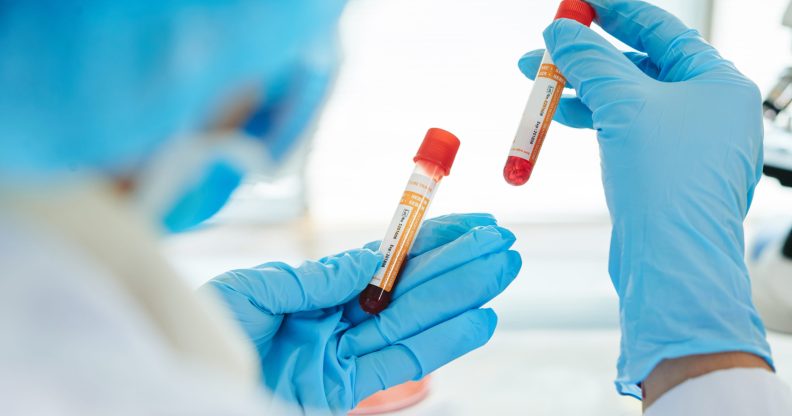New STI diagnosed every 70 seconds in England as cases of gonorrhoea and syphilis surge

A new report has highlighted the shocking rise in STI rates in the UK (Envato Elements)
Sexual health organisations are calling on Boris Johnson to urgently address a nationwide STI boom as England experiences the highest rates of syphilis since World War II.
An eye-opening new report from the Terrence Higgins Trust and British Association for Sexual Health & HIV (BASHH) warns of shockingly high STI rates caused by widening inequalities, brutal funding cuts and limited action by the government.
Nearly half a million (447,694) cases of STIs were diagnosed in England in 2018 alone, with approximately one STI diagnosis every 70 seconds.
Gonorrhoea is up 249 per cent, syphilis is up 165 per cent, while rates of chlamydia increased by 6 per cent in 2018 – but the government has slashed spending on sexual health services by a quarter since 2014.
The burden of STIs was found to disproportionally impact young people, gay and bisexual men, individuals from some ethnic minority populations and people living with HIV.
Young people account for nearly half of all new STI diagnoses (48 per cent), with gay and bisexual men accounting for three in four (75 per cent) of all syphilis diagnoses. Some of the highest overall rates of STIs were reported in Black Caribbean and Black non-Caribbean/non-African populations.
The emergence of drug-resistant STIs makes the threat even greater, and inconsistent testing across sexual health clinics means that emerging STIs such as Mgen are being undiagnosed.
‘Lack of a clear national STI strategy.’
Jonathan McShane, chair of Terrence Higgins Trust, said the report should be a “wake up call” to the government to take action against the “rising tide of STIs”.
“Local government has played a key role in improving sexual health but has been held back by a combination of severe cuts to their public health budgets and the lack of a clear national strategy,” he said.
“This has resulted in the rates of some STIs spiralling and services struggling to cope with demand. It’s clear to see that sexual health has been neglected for too long and has not been a priority for successive governments.
“The impact of this is being felt most by groups already facing discrimination and stigma who are shouldering the heaviest burden of new STIs. Yet very little has been done to tackle these widening health inequalities.”
He continued: “There needs to be a long-term approach to improving sexual health. An ambitious strategy, matched with proper funding, is the only way we can support people to have healthy and fulfilling sex lives. The government must roll up its sleeves and get to work because the current state of the nation is simply not good enough.”

